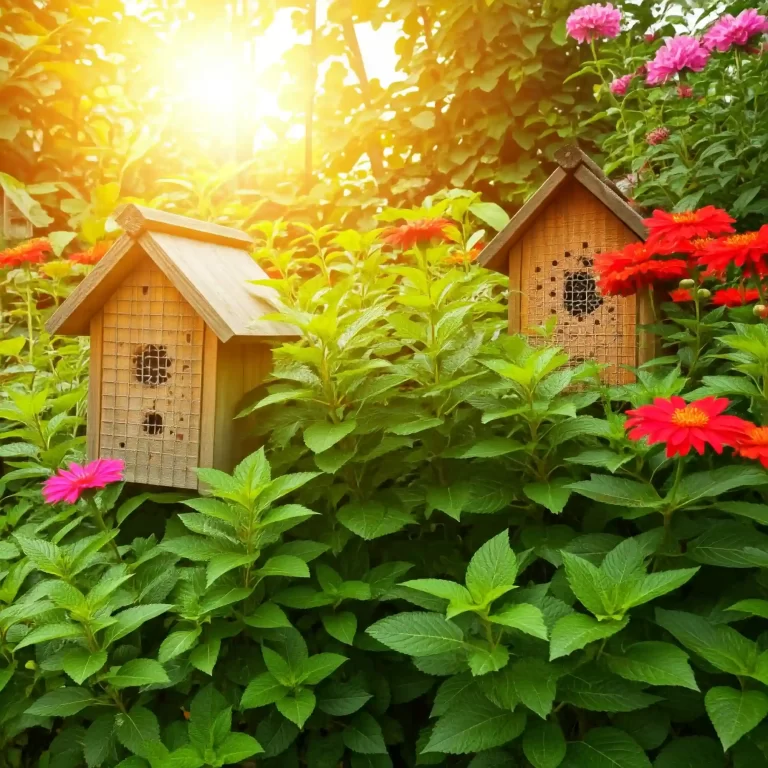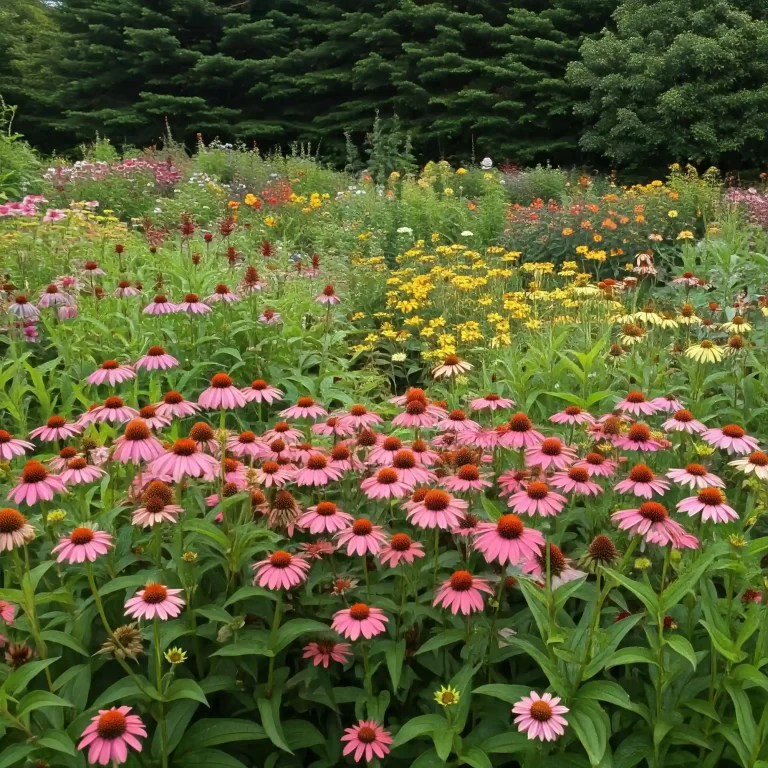Imagine a garden bursting with vibrant vegetables, luscious fruits, and fragrant flowers – all thriving without a speck of chemical intervention. Sounds like a fairytale, doesn’t it? Well, it’s not! Organic pest control success stories are a testament to the power of nature’s own ingenious solutions. These real-life examples showcase how gardens can flourish with the help of natural methods, creating a haven for pollinators, beneficial insects, and, of course, delicious homegrown produce.
This definitive guide dives deep into the world of organic pest control success stories, inspiring you to cultivate a thriving, chemical-free garden oasis. We’ll explore:
- The magic behind organic pest control: Discover how these natural methods work to keep your garden healthy and pest-free.
- Inspiring success stories: Meet fellow gardeners who’ve achieved remarkable results using organic techniques.
- Unlocking the benefits: Understand the advantages of organic pest control for your garden and the environment.
- Getting started with organic pest control: We’ll equip you with practical tips and resources to implement these methods in your own backyard.
Unveiling the Magic: How Organic Pest Control Works
Organic pest control isn’t about brute force; it’s about working with nature to create a balanced ecosystem in your garden. Here are some key strategies that make it all work:
- Companion Planting: Certain plants have a symbiotic relationship, attracting beneficial insects that prey on garden pests. For example, nasturtiums lure aphids away from your prized vegetables, while dill provides a haven for ladybugs – natural aphid assassins.
- Beneficial Bug Brigade: Ladybugs, lacewings, and parasitic wasps are nature’s pest control champions. By creating a welcoming environment with flowering plants and avoiding broad-spectrum pesticides, you attract these helpful critters to keep pest populations in check.
- Natural Deterrents: Hot pepper sprays, garlic sprays, and neem oil are effective yet gentle deterrents for a variety of pests. These homemade concoctions are safe for beneficial insects and pets but make your garden an unwelcome environment for unwanted visitors.
- Row Covers and Physical Barriers: Protect young seedlings and vulnerable crops with physical barriers like row covers or netting. This keeps hungry pests like cabbage moths and carrot flies at bay while allowing sunlight and water to reach your plants.
Blooming Examples: Inspiring Organic Pest Control Success Stories
Let’s delve into some real-life examples that showcase the power of organic pest control:
Case Study 1: The California Citrus Revival
California’s citrus industry once heavily relied on chemical pesticides. However, the overuse of these chemicals led to a resurgence of pests and a decline in overall crop health. Many citrus farmers started adopting organic methods like integrated pest management (IPM) and biological controls. The results? Reduced pest problems, healthier trees, and improved fruit quality.
Case Study 2: The Urban Oasis
Imagine a thriving rooftop garden in the heart of a bustling city, bursting with vegetables and herbs – all managed organically! This is the story of countless urban gardeners who are proving that even limited space can become a haven for healthy food production with the help of organic techniques.
These success stories are just the tip of the iceberg. From backyard vegetable patches to sprawling community gardens, organic pest control is empowering people to cultivate healthy food and vibrant ecosystems in all sorts of settings.
Cultivating Abundance: The Benefits of Organic Pest Control
The benefits of organic pest control go far beyond a thriving garden. Here’s what you stand to gain by embracing this natural approach:
- A Safe Haven for Pollinators and Beneficial Insects: By eliminating chemical pesticides, you create a safe haven for bees, butterflies, and other pollinators. These vital creatures play a crucial role in our food production system by ensuring the successful reproduction of many plants.
- A Healthy Ecosystem: Organic practices promote biodiversity in your garden. A diverse collection of plants attracts beneficial insects and creates a natural balance that keeps pests at bay. This fosters a healthy ecosystem that benefits your garden and the surrounding environment.
- Chemical-Free Produce: Who wouldn’t want to enjoy the taste of homegrown vegetables and fruits without worrying about chemical residues? Organic pest control allows you to cultivate produce that is free from harmful chemicals, ensuring a healthier and more wholesome experience for you and your family.
- Improved Soil Quality: Chemical pesticides can harm the delicate balance of microorganisms in the soil. Organic methods, on the other hand, promote healthy soil life. This translates to better nutrient uptake for your plants, leading to stronger, more resilient crops.
- Long-Term Sustainability: By relying on natural solutions, you’re not just protecting your garden in the short term; you’re contributing to a more sustainable future. Organic pest control helps to preserve the delicate balance of our ecosystems for generations to come.
Your Organic Pest Control Journey Begins Now!
Inspired to create your own organic pest control success story? Here’s how to get started:
1. Assess Your Garden: Before diving in, take a good look at your existing garden layout and identify any potential pest problems. This will help you tailor your organic pest control strategies.
2. Embrace Plant Diversity:
- Plan your garden beds: Design your planting scheme with companion planting in mind. This can help deter pests and attract beneficial insects.
- Incorporate flowering plants: Intersperse your vegetable and herb crops with flowering plants like marigolds, cosmos, and dill. These attract beneficial insects and add a touch of beauty to your garden.
3. Attract the Good Guys:
- Provide nesting sites: Create a welcoming habitat for beneficial insects by building ladybug houses or offering natural nesting materials like woodchips and hollow stems.
- Offer a water source: A shallow dish filled with clean water can attract thirsty beneficial insects like ladybugs and dragonflies.
4. Utilize Natural Deterrents:
There’s a whole arsenal of natural concoctions you can create at home to keep pests at bay. Here are a few popular options:
| Natural Deterrent | Targets |
|---|---|
| Hot pepper spray | Aphids, leaf beetles, caterpillars |
| Garlic spray | Aphids, mites, fungal diseases |
| Neem oil | A wide range of pests, including mites, aphids, and whiteflies |
5. Practice Monitoring and Intervention: Regularly inspect your plants for signs of pests or diseases. Catching problems early allows for timely intervention with natural methods like handpicking pests or using insecticidal soap.
6. Embrace the Learning Curve:
Organic pest control is a continuous learning process. Be patient, observe your garden, and adapt your strategies based on your observations. There are many resources available online and in libraries to help you on your journey.
With a little dedication and these handy tips, you can cultivate a thriving, chemical-free garden that’s a haven for healthy food production and a vibrant ecosystem. Remember, your organic pest control success story is just waiting to be written!


